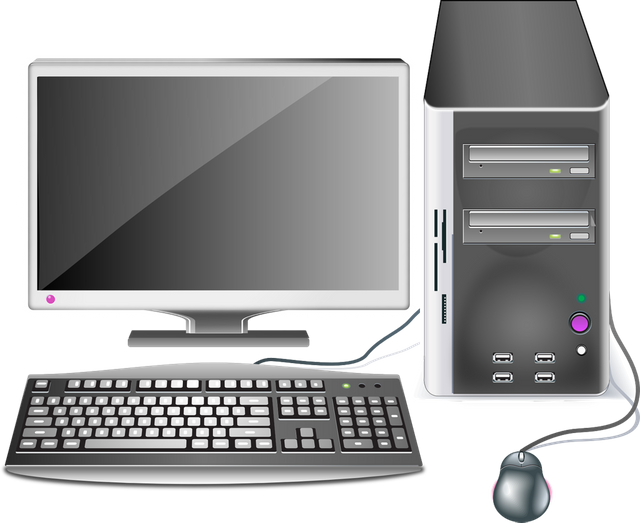Can Bitcoin Save The Personal Computer?

[Image Source: pixabay.com, licensed under CC0, Public Domain]
Background
I began playing around with grid computing for the SETI@home project as far back as the 1990s. The World Community Grid launched on November 16, 2004, and I signed up 4 days later. I have been contributing to it almost continuously since then. Needless to say, I'm a big believer in decentralized computing. I think this has long been one of the most underappreciated technological capabilities in existence. As a result, I have been perplexed for more than a decade as to why this decentralized problem-solving architecture has been largely ignored in the corporate computing world.
My big miss in decentralized computing was bitcoin. It took a while until I learned about it, and when I did, I stayed on the sidelines for far too long. It wasn't until 2015 that I finally decided to try mining with my home computers. As most here will know, that was far too late. By that time, the home computer had been outclassed by Graphics Processing Units (GPUs) and later by specialized mining appliances. But, as a hobbyist, I wasn't really concerned about revenue. After all, anything was better than the $0.00 that I had been getting from the World Community Grid, and it was fun to play with the technology. So I started mining with the Bitcoin Miner from the Windows Store and started learning.
As time went on, I learned that Bitcoin Miner wasn't really mining bitcoins at all. It was actually mining something called bitcoin scrypt and paying me for them with bitcoins (satoshis, actually ; -), so I began to wonder if I could cut out the middleman, and also learned of the existence of other altcoins. After a series of experiments (some successful, others failed), I determined that the best balance of convenience and payout for me to convert my computer's spare CPU into bitcoin (and steem power) is to use the Windows client from NiceHash. That's what I've been doing for the last 8 or 10 months.
The way that Nicehash works is that it monitors the price of a bunch of mining algorithms, and automatically rents my processor to someone who wants to mine using the most profitable algorithm. My CPU does the mining, the person who rents the cloud computing from Nicehash gets any altcoins that I produce, and Nicehash pays me the equivalent value minus a 3 percent fee in bitcoin. In short, by connecting equipment owners with renters, Nicehash is sort-of like Uber for cryptocurrency mining.
I am not buying specialized PCs for mining, just using the ones I already had, so my best paying computer normally produces at a rate of just $0.05 to $0.15 per day. Every once in a while, though, something happens in a market that I don't know or care about, and the payout suddenly goes through the roof. This happened recently with the zcash launch. My $0.15 per day computer suddenly started producing at a rate of $5 per day. Unsurprisingly, it's now settling back down to it's normal rate.

[Image Source: pixabay.com, licensed under CC0, Public Domain]
The Emerging Market for Home Computing
What I am starting to realize from these cycles of burst and flattening is that all these different altcoins are just tapping into a single worldwide market for distributed computing resources. In today's market conditions, my PC's CPU time is worth somewhere around $.05 to $.15 per day, and any cryptocurrency that's paying more (looking at you, zcash) is overpaying. All of the different cryptocurrencies are simply ways to try to compete for the idle CPU power (and electricity) that's sitting out there, waiting to be exploited. I'm even renting out disk space using Storj. Future distributed computing applications will all be required to pay for the processing time and resources that they use. Gridcoin, for example, enticed me back to SETI@Home and World Community Grid, projects that I had abandoned in favor of crypto-mining.
In the end, there are two types of things that can be done with distributed processing. One of them is mining for cryptocurrencies, and that activity is proceeding nicely. The second thing that can happen, though, is problem solving. The market for solving real-world problems with distributed computing is still very sparse. The use of GridCoin to pay for a variety of grid computing applications is a start, but there is still so-o-o-o much untapped capability. There may be as many as two billion personal computers in the world. By comparison, less than one million people are participating in the World Community Grid. Even if we assume five computers per person, that's still well under 1%.
So here's what I think. I don't know when, but eventually, businesses will figure it out. They will move their high performance processing out of their own datacenters, out of cloud service providers, and into peoples' homes. Why pay to power and cool a data center that houses a bunch of computers that spend most of their time sitting idle when I can rent time on-demand from millions of PCs that someone else funds?
Someone just needs to extend the "Uber for CPU" model out of the cryptocurrency space and into the problem-solving space.

[Image Source: pixabay.com, licensed under CC0, Public Domain]
How Does This Affect Computer Sales?
Until now, I have always bought low-end computers, the cheaper the better, knowing that their technology would be obsolete in six months, and that for web browsing and document editing, I almost never have a need for anything near full capacity. However, because of this emerging market for home computing, for the first time in my life, I'm thinking about buying high-end next time. Why not, when it can generate income and pay itself off in a couple years? Of course, I was far behind the leading edge of bitcoin adoption, but I'm still in the group of early adopters of cryptocurrency. I fully expect that when cryptocurrency moves from early adopters into the main stream, many people in early and late majority groups will have similar thoughts to mine.
So back to the title of this post: The common wisdom in the computer market place is that desktop and laptop sales are dwindling. In the future, people will buy very few desktops - mainly just gaming computers, few laptops, and mostly mobile devices. But I think that as a result of the trail that was blazed by bitcoin and subsequent altcoins, this is all about to change. Computer manufacturers like Dell, and HP, and Lenovo, will eventually figure out that they can set up some sort of infrastructure to enable their customers to rent out unused resources, and the retailers will preconfigure their PCs to make use of it, and they'll publish expected "payoff dates" for their products - dates when the rentals are expected to cover the cost of the purchase. As a result, customers will see the purchase as a revenue source, and they will purchase more and faster PCs in the future. The typical home of 1850 was financially self-sustaining through agricultural farming. Perhaps the typical home of 2050 will be self-sustaining through CPU farming?
@remlaps is an Information Technology professional with three decades of business experience working with telecommunications and computing technologies. He has a bachelor's degree in mathematics, a master's degree in computer science, and is currently completing a doctoral degree in information technology.
Very interesting article. I wasn't aware of Nicehash - something to look into. Uber revolutionised the car share industry very quickly, once the time was right. So it's very possible that a similar experience will occur with personal computers. It will be interesting to watch the developments within both the home computer, and cryptocurrency markets in the near future.
Downvoting a post can decrease pending rewards and make it less visible. Common reasons:
Submit
Thank you for the feed back. If you do look into nicehash, it's also possible to connect to steemit so that your payout automatically converts into steem power. I wrote an article about it a while ago, but this one from @cryptos the other day is better.
It's pretty easy to set up on Windows. If enough people start using it, maybe it'll put some buying pressure on the price of steem.
Downvoting a post can decrease pending rewards and make it less visible. Common reasons:
Submit
Thank you for the followup links. I will look into them. Human ingenuity can influence the future in interesting ways. I like where all of this is going.
Downvoting a post can decrease pending rewards and make it less visible. Common reasons:
Submit
Good questions in your post. Am thinking the same thing.
Downvoting a post can decrease pending rewards and make it less visible. Common reasons:
Submit
Makes sense. I love my laptop (MacBook) but know I that for all the time I spend on it, I use very little of it, to say nothing of the many hours a day I'm not using it.
Thanks and hope you're right!
Downvoting a post can decrease pending rewards and make it less visible. Common reasons:
Submit
Thanks for the feedback!
Downvoting a post can decrease pending rewards and make it less visible. Common reasons:
Submit